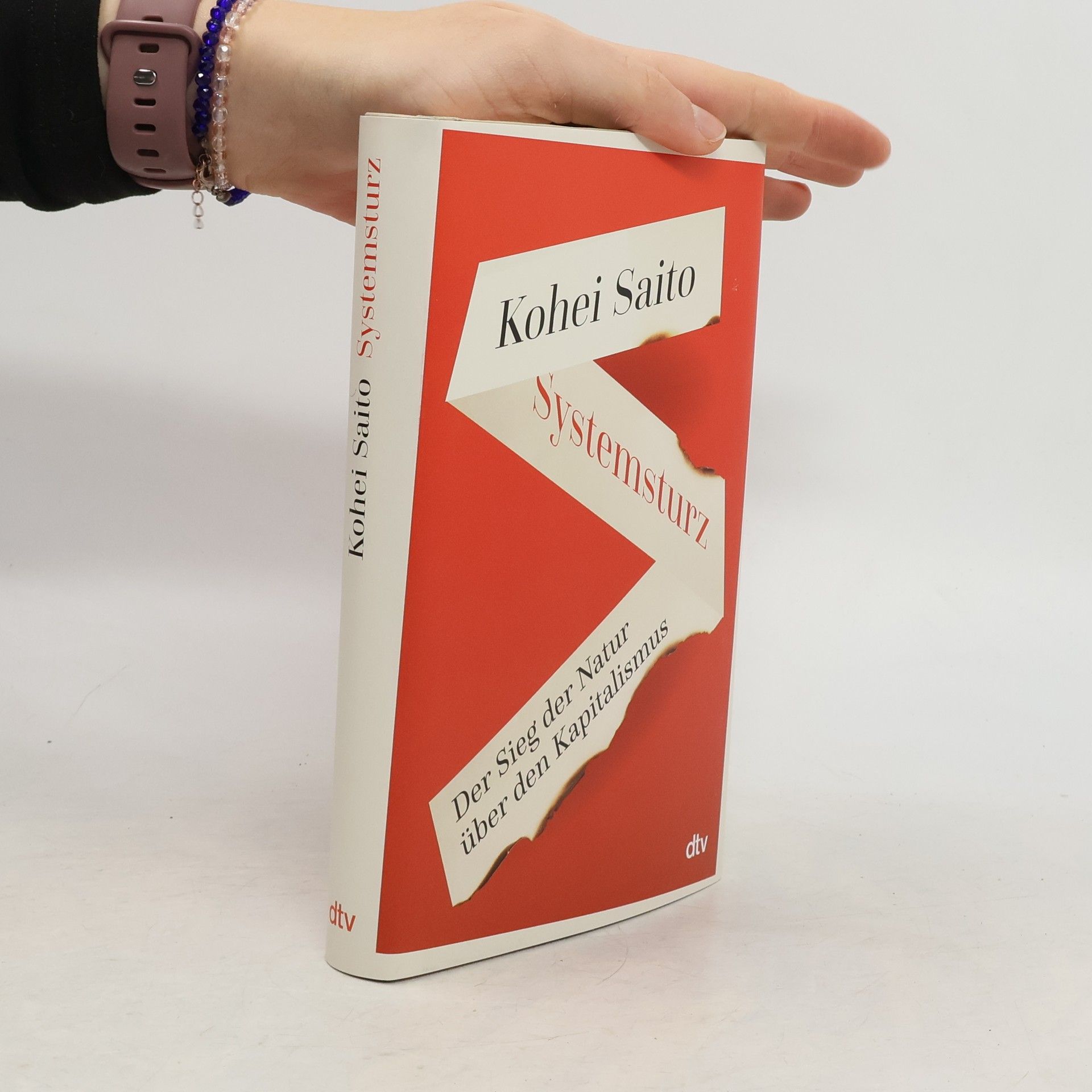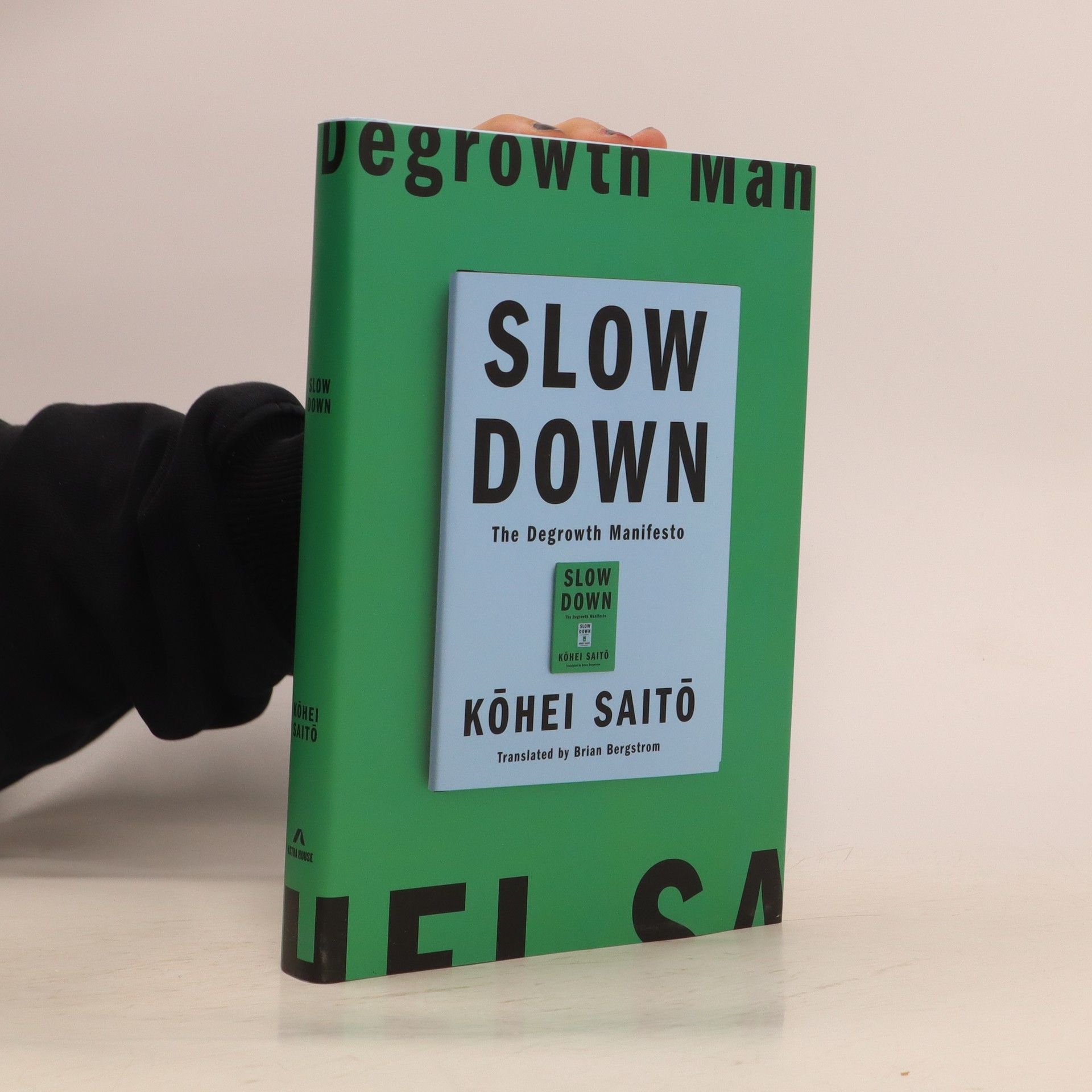"Delving into Karl Marx's central works as well as his natural scientific notebooks, published only recently and still being translated, [the author] argues that Karl Marx actually saw the environment crisis embedded in captialism. [The book] shows us that Marx has given us more than we once thought, that we can now come closer to finishing Marx's critique, and to building a sustainable ecosocialist world."--Page [4] of cover.
Kōhei Saitō Boeken





A revelatory manifesto that transforms climate economics for a new generation schovat popis
Marx in the Anthropocene: Towards the Idea of Degrowth Communism
- 292bladzijden
- 11 uur lezen
Facing global climate crisis, Karl Marx's ecological critique of capitalism more clearly demonstrates its importance than ever. This book explains why Marx's ecology had to be marginalized and even suppressed by Marxists after his death throughout the twentieth century. Marx's ecological critique of capitalism, however, revives in the Anthropocene against dominant productivism and monism. Investigating new materials published in the complete works of Marx and Engels (Marx-Engels-Gesamtausgabe), Saito offers a wholly novel idea of Marx's alternative to capitalism that should be adequately characterized as degrowth communism. This provocative interpretation of the late Marx sheds new lights on the recent debates on the relationship between society and nature and invites readers to envision a post-capitalist society without repeating the failure of the actually existing socialism of the twentieth century.
Systemsturz
Der Sieg der Natur über den Kapitalismus | »Kohei Saito ist der neue Piketty.« Berliner Morgenpost
Ohne Kapitalismus in die Zukunft Wenn wir glauben, die Welt durch nachhaltigen Konsum vor der Klimakatastrophe zu retten, betrügen wir uns selbst. Das sagt der japanische Philosoph Kohei Saito. Denn der Kapitalismus ist nicht zukunftsfähig. Klar und überzeugend vertritt Saito die These: Nichts, was die Welt jetzt braucht, lässt sich innerhalb eines kapitalistischen Systems realisieren. Grünes Wachstum ist unmöglich. Was wir stattdessen brauchen? Einen neuen Kommunismus. Genauer gesagt: einen Ökosozialismus, der nicht auf Wachstum ausgerichtet ist, der das Produktionstempo herunterfährt und Wohlstand umverteilt. Schon Marx plädierte für eine nachhaltige Wirtschaftsordnung. Und nur damit wird es uns gelingen, die Natur – unsere Lebensgrundlage – zu erhalten. Die bahnbrechende Neuinterpretation der Marx'schen Theorie von einer der aufregendsten jungen Stimmen der internationalen Philosophie »Neoliberale Maßnahmen wie Deregulierung oder Beschneidung des Sozialstaats, mit denen das Wachstum angetrieben wurde, haben soziale Gräben und Instabilität hinterlassen. Warum sollen wir so weitermachen, unser ganzes Leben auf Arbeiten, Geldverdienen, Konsumieren ausrichten? Wir brauchen einen ›new way of life‹.« Kohei Saito
Natur gegen Kapital
Marx' Ökologie in seiner unvollendeten Kritik des Kapitalismus
Marx’ Ökologie – dieser Ausdruck klingt wie ein Oxymoron. Hat Marx nicht die absolute menschliche Herrschaft über die Natur propagiert? Angesichts der heutigen globalen ökologischen Krise ist es unumstritten, diese im engen Zusammenhang mit dem kapitalistischen System zu analysieren. Für die Gestaltung einer breiten »roten« und »grünen« Bewegung im 21. Jahrhundert ist deshalb eine Aktualisierung der Marx'schen Theorie unerlässlich. Kohei Saito rekonstruiert systematisch die unvollendete Marx’sche ökologische Kritik des Kapitalismus anhand der neuen Marx-Engels-Gesamtausgabe. Diese gibt unbekannte naturwissenschaftliche Exzerpte von Marx preis sowie seinen Versuch, den Widerspruch des Kapitalismus als ökologische Krise zu thematisieren.